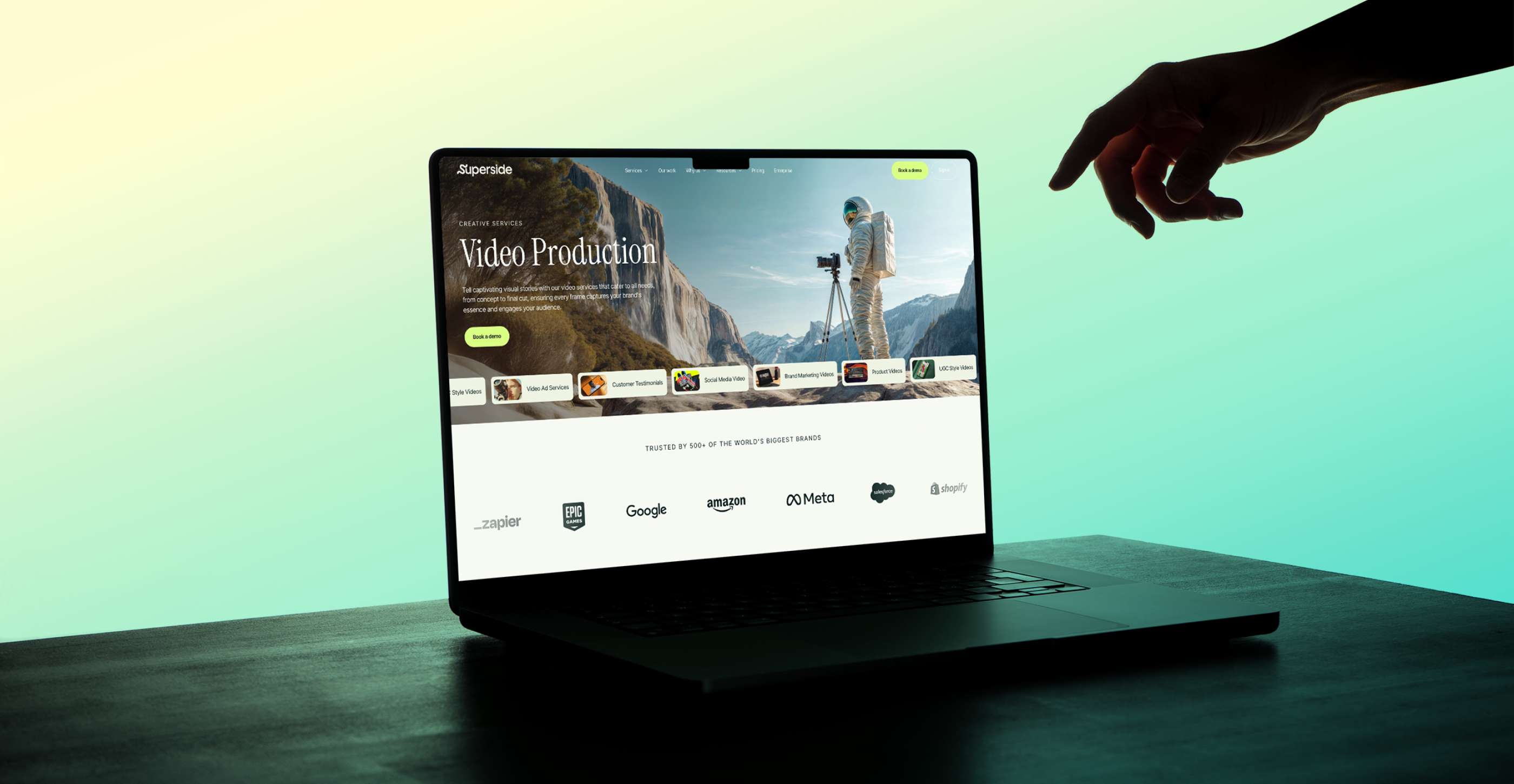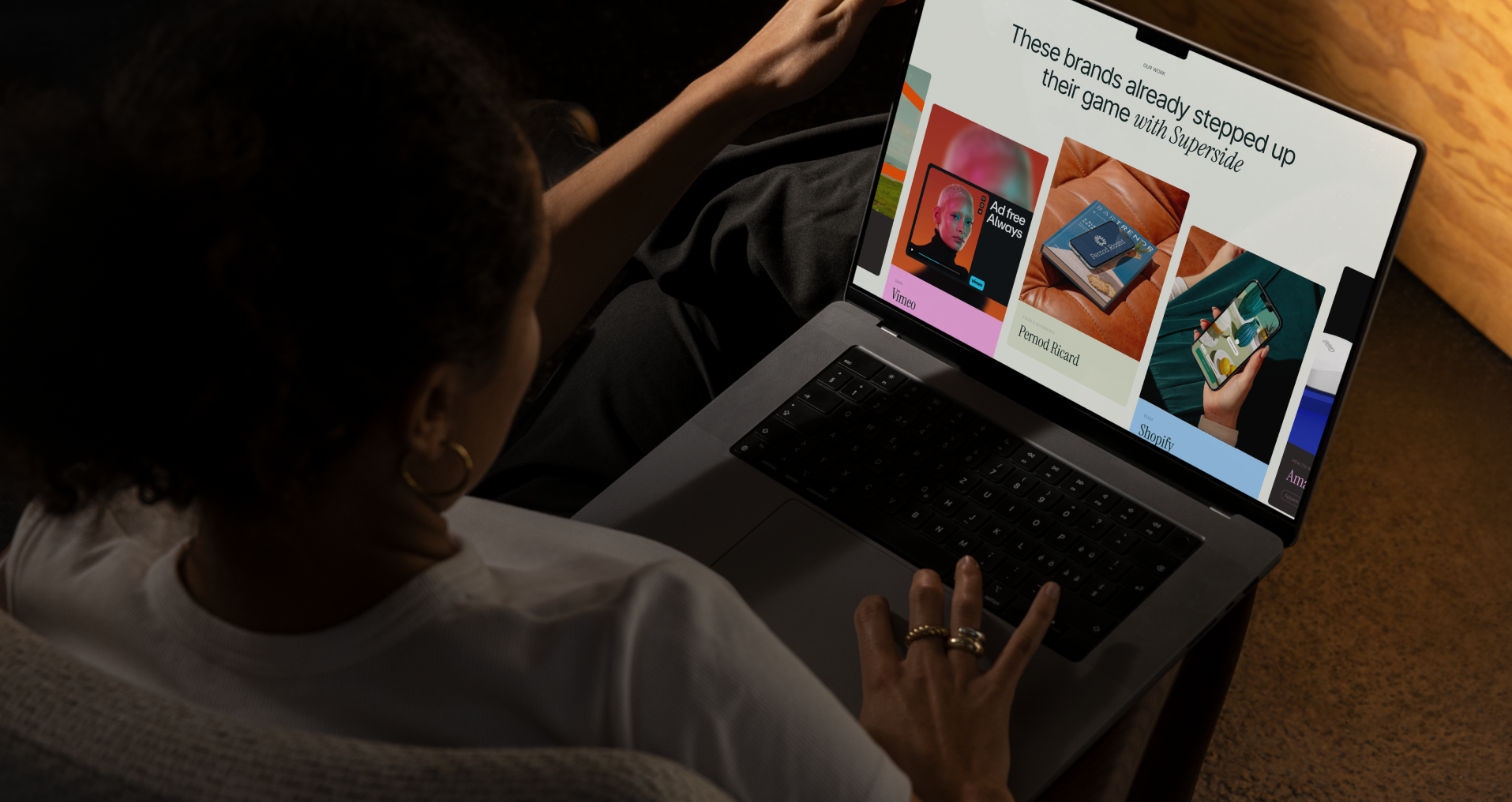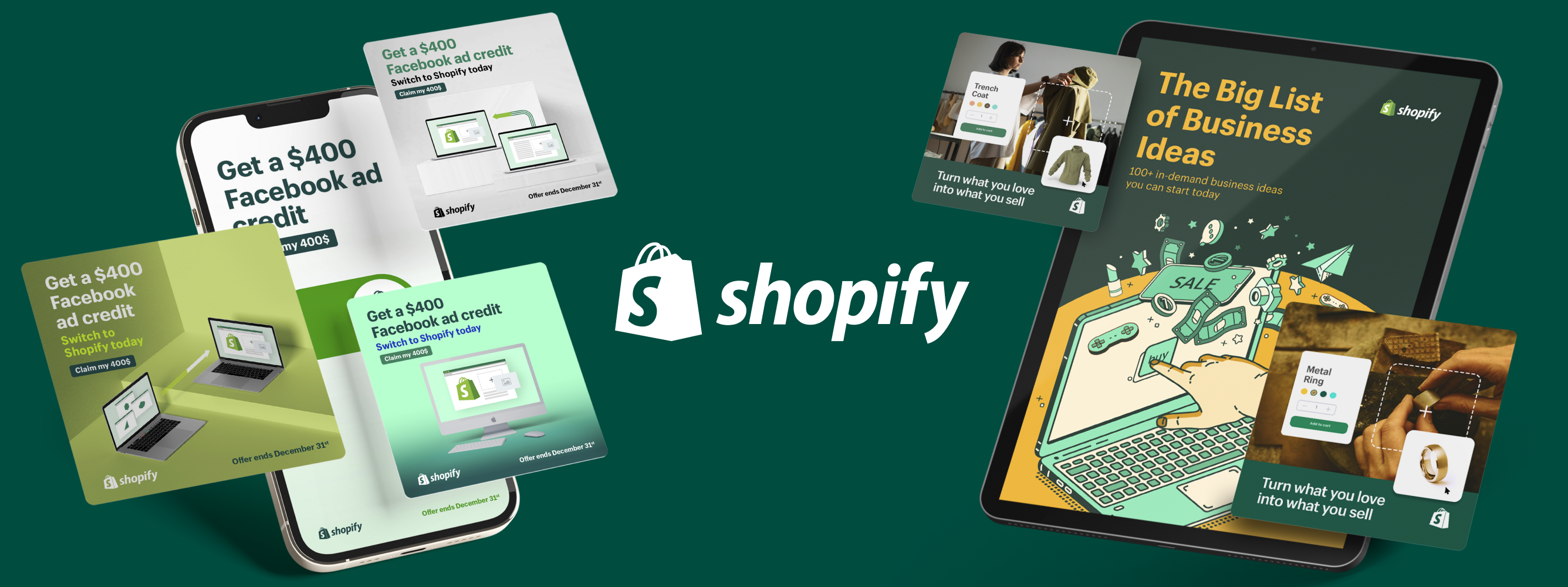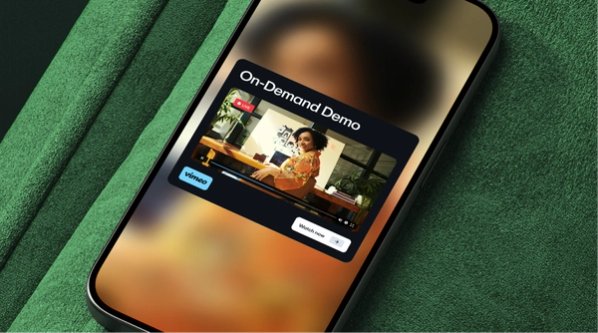Try These 15 Types of Video Marketing in 2025 (With Examples!)


Video marketing is paramount in 2025 for enterprises. With diverse formats like short-form, explainer and testimonial videos driving engagement across platforms. Today, we’ll highlight 15 key types of video marketing, examples & strategies to leverage the growing demand for video content.
Whether you're aiming to boost brand awareness, enhance customer retention or achieve growth, videos are one of the most effective mediums to do so. You'll also learn how Superside offers a comprehensive solution for all your video marketing needs, blending human expertise with AI-powered production to deliver high-quality, impactful content at scale.
It’s pretty hard to go anywhere online these days without coming across a video. Just think about the last time you scrolled through Instagram, Facebook or Twitter and paused on a post.
It was probably a video that caught your attention, right?
Consumers are now watching more video than ever before. Experts predict that the average person will spend 100 minutes every day watching online videos this year. That adds up to almost 26 days a year, just watching videos.
Even if you already know the impact that video content can have on your digital marketing efforts, it's difficult to know which types of video marketing you should make to maximize the impact of your marketing campaign.
So if you are looking to do more video marketing for business, this post will give you the guidance and insight you need to take your video marketing strategy to the next level.
The Importance and Benefits of Video Marketing
We all know the importance of video marketing, considering that videos reign supreme across most online channels for both B2B and B2C.
From long-form how-to videos to quick-bite TikTok videos, online users love consuming different types of videos and the video marketing statistics do not lie.
Videos get more engagement than text or image posts on almost every social platform, which means that creating videos for marketing purposes is one of the best ways to get your content seen.
In fact, adding videos to websites (even if we talk about explainer videos, animated videos and other types of video marketing strategies for brands) increases your chances of showing up higher in the SERPs.
But let’s dive into how and why video marketing does such a fantastic job at grabbing people’s attention and driving key actions from your audience.
Online video marketing supports three key stages of brand development: differentiation, retention and growth.
Differentiation
Studies show that 54% of consumers want to see more types of video content from a brand or business they support. To meet the demand, brands of all sizes need to create different types of videos to compete.
Fortunately, there are many ways and video marketing tips that companies can use to stand out and make a memorable impression on their target audiences. So, switch it up. Find what works.
Template the process and repeat. Think of all the ways you can incorporate different elements into video content: live actors, costuming, music changes to motion design, promotional videos, customer testimonial videos, illustrations, animated how-to’s and more. The best brands have more room to express themselves and show their personality.
Retention
Video is an emotionally impactful medium. With brand video, companies can communicate non-verbal cues like body language, facial expressions and tone of voice in a way that blog posts or static images alone can’t offer. Video is a powerful retention tool.
Consumers can put a face to the name. Videos help to humanize and personalize your brand experience, inspiring people to support your brand for the long haul. Videos can turn casual followers into highly engaged brand advocates.
Growth
Not only are many companies seeing that investing in video marketing boosts engagement on their social media channels and website, but it’s also great for their bottom line and overall digital marketing strategy. In fact, 93% of companies claim they got a new customer because of their video content on social media. Another 63% of businesses say that video gets the best ROI on social media.
The key is to use video as an extension of your brand within a comprehensive video marketing strategy. When you know what you stand for, how you communicate, and who you want to reach, then you can create scroll-stopping video content that can turbocharge your business’ growth. You could either hire the best video marketing companies to do everything for you, or make them yourselves. That often comes down to budget and needs.
How to Make a Marketing Video
Before you fire up that DSLR or open up your phone’s camera, you need to know what you ultimately want to achieve with your video content, as different types of marketing videos are more suited for different goals.
Most online video marketing objectives falls into three main categories:
- Awareness
- Engagement
- Education
1. Awareness
These are types of videos that will help you get on your customers’ radar on social media platforms. Generally, these kinds of videos need to be attention-grabbing, memorable, shareable and highly original. Any kind of ‘viral video’ would fall into this category.
2. Engagement
Engaging videos are meant to spark a reaction, such as a like, comment or share. Videos in this category usually have some kind of emotional element to inspire people to engage, such as an interesting behind-the-scenes video or thought-provoking interview.
3. Education
This category is pretty self-explanatory: educational videos should teach your audience something. If you’re looking to engage potential customers with professional videos, a customer case study can offer more insight into the business’ impact. For current customers, a how-to video can help them better understand how to leverage your offer. A full-stacked creative design agency can help you make these three videos for all your needs.
Some other key things you should keep in mind:
- Create and optimize your videos for specific channels. People tend to stumble upon social media videos rather than search for them, so they need to be instantly eye-catching on Instagram or Facebook. Whereas YouTube videos should be search engine optimized with click-worthy titles, captions enabled, and hashtags so your content shows up when people look for specific keywords or are interested in certain topics.
- Use psychology to make better videos. Keep in mind that different colors evoke different emotions. Music can help hook viewers in right away and storytelling can help your audience relate more to your brand.
- Ensure your videos look and feel professional. The quality of your video content is a reflection of your brand. To make your videos look professional, it’s important to write a clear script, use good lighting, pick a clean backdrop, and create a strong intro and outro.
- Producing videos doesn’t have to cost an arm and a leg. DIY-style videos often perform better (read: authenticity) in social ads than more professional-looking content. To level up your DIY video, you can layer animations or motion design which can be affordably outsourced. That’s pretty much what we do here at Superside.
For more on video marketing, read our: Not Your Typical; The Ultimate Video Marketing Guide
The 15 Types of Videos for Marketers
Need a little inspiration for your video marketing efforts? We’ve rounded up 15 different types of marketing videos that you can try out. Each type of video content has a great example to go with it:
- Company culture video
- Interview / Q&A video
- Featured / Product video
- Explainer video
- Live video
- User-generated video
- Event recap video
- Webinar/online event video
- Tutorial/How to video
- Educational video
- Case study video
- Personalized video
- Short-form social media video
- Paid social media video
- Testimonial video
1. Company culture video
Company culture videos highlight the human side of your brand on your YouTube channel or other streaming platforms. They should show your audience what work life is like at your company, amplifying the people and initiatives that make your company great.
Traditional culture videos often feature a few in-person interviews with staff members, mixed with some b-roll of people working, having fun in the office or at an offsite.
But why not have fun with it and try something a little different? For example, you could have your team record themselves singing a popular song over Zoom or use puppets as Dropbox did.
2. Interview/Q&A video
Interview or Q&A are types of videos that answer your audience’s most pressing questions, and are part of a broader video strategy for your campaign. You could sit down with a thought leader, customer or team member for an on-screen chat or produce a solo video where a team member answers questions that people have submitted ahead of time. You can also record your interview in advance or conduct it live and publish the recording on your social media channels or videos.
Interview videos are a great way to help your audience feel seen and heard, and they also work as great educational content that can boost the impact of your social media marketing campaigns. They can also help you build brand awareness and authority by aligning your company with a notable thought leader or personality.
We love how Dubsado created an interview series on Instagram Live called ‘Tea Time with Becca’ and then posted the videos to their IGTV channel afterward.
3. Features/product videos
These are ‘show-and-tell’ videos that highlight a particular feature of your product or service. They can be useful for educating potential customers and helping them learn more about what you do. With a feature/product video, however, the production value is critical. These types of videos should convert prospects, so make sure they look professional and polished.
See how Salesforce uses a feature/product video to showcase their Workplace Command Center. While it’s essentially a screen share, the editing, music and voice-over add a level of professionalism that makes the video pop.
4. Explainer video
Explainer videos should clearly articulate what your company does to people who may be unfamiliar with your brand. A good explainer should describe the problem your company is solving, who you help, and how it works in a way that makes your viewers want to learn more.
This explainer video from Okta is a home run. The company produces a pretty technical solution (enterprise-grade, identity management service). Still, the video successfully breaks down what they do and adds a little humor to the mix.
5. Live video
Most social platforms now give users the ability to create live streaming videos, which are great for engaging with your audience in real-time. You can use live video for company announcements, interviews and Q&As, and webinars.
Shopify used live video to host a virtual panel with notable Black professionals. The live format brings an added level of excitement and urgency to the viewing experience, with the bonus of having a recording that Shopify followers can watch and re-watch whenever they want.
6. User-generated video content
Have limited time and resources? Get your followers to produce content for your brand by encouraging them to create videos using your product. You can hold a contest to have your followers submit videos to answer, reach out to influencers or reshare or repurpose videos your fans have posted organically (with their consent, of course!).
This video from Glossier’s Instagram is an excellent example of user-generated content. The video shows a real-life customer using their product, but the fun concept (“things to do while masking”) adds a touch of quirkiness that aligns with the company’s youthful brand.
7. Event recap video
Creating videos from your company events can be a great way to show off your company’s personality or bring awareness to your most important initiatives. You can create videos from your events or ones you attend. You can also record and edit together recap videos or live stream your event on Facebook, Instagram or YouTube live.
8. Webinar/online event videos
Webinars are an old marketing standby, but these types of videos are still a super effective way to educate your audience on topics that matter to them. They’re also a great tool for converting your audience from your free trials or content into your paid offers.
Webinars are typically a slide deck presentation presented over a video call (check out the example from Planoly below). However, you can also create webinars where you review a product with some existing customers or do a roundtable panel discussion with several thought leaders in your niche.
9. Tutorial/how-to videos
A how-to or tutorial style video walks your viewers through a process or answers a common question that’s relevant to your product or service. These educational content marketing examples are great for building trust and credibility positioning your brand as a helpful resource.
Hubspot created a how-to IGTV video on turning empty traffic into leads. Its clear step-by-step format, with simple graphics and easy-to-read captions make a somewhat overwhelming topic like content marketing extremely digestible.
10. Educational video content
Similar to how brands create original content for their blog, you can do the same on a platform like YouTube. The approach here is to take a topic that aligns with your brand and existing content strategy, then instead of making a traditional post, record a video!
Hot tip: you can take your existing blog content that is performing well and turn that into a script for your video, which is what Looka did with their video on creating a creative name for your business.
11. Case study video
Explainers and how-to videos are great for showing your audience what you do, but case studies illustrate your company’s value, answering the question that every customer has before making a purchase: ‘Will this offer deliver on its promise?’
Case study videos are typically interviews or Q&As. Still, we love how this video from Flixel Photos also includes beautiful shots of the customer’s products and infographics to highlight the company’s impact. It doesn’t just present facts and figures — it tells a story.
12. Personalized video
Did you know that 80% of online shoppers are more likely to buy from a company that offers a personalized experience (which includes personal videos)? Creating personalized videos for your customers can help show that you genuinely care about them and their success.
This video from Vidyard explains what personalized videos are, how to create an awesome one and shares some examples of compelling personalized videos.
Instagram Reels and TikToks are short-form videos that often incorporate transitions, captions and video effects. They’re fun, creative videos that usually pack a lot of entertainment value into a minute or less.
Although original creative video concepts can get a lot of engagement, the top-performing TikToks and Reels often riff on a trending song, format or trend. For example, this Reel from WeWork uses a fun rotating-style transition and a popular song to show off one of their coworking spaces and highlight their staff.
These types of quick eye-catching videos also tend to work well as social ads! If you're looking for expert tips on ad design, we've got a guide for that.
Not only do video ads get more clicks than image ads, but they also give marketers more creative freedom to show off a brand’s personality and connect emotionally with an audience. Leveraging animated illustrations also seems to be a hot trend in social ads right now!
To create ads that attract, engage and convert, think mobile-first, make sure you produce ads that work without sound (i.e use captions) — 85% of Facebook videos are watched on mute — and make the first three seconds of your ad count.
15. Testimonial Videos
A video testimonial showcases a customer complimenting a business. In the video, the client opens up and provides the how and why a company’s product or service was the ultimate solution to their never ending problem or pain point. Generally, the client gives a little background about who they are, the reasons they chose the product, how they use the product, and finally what they like about the company.
You can use the written word for testimonials, but a video testimonial appeals to our emotions. By watching the video, we experience the customer’s emotions ourselves thus increasing the value of the video. By using the customer’s own words, instead of paraphrasing, it bleeds with authenticity.
There are many ways to use testimonial videos: showing the before and after, create two videos to show different perspectives (i.e. male vs. female), focus on the whole customer journey (background, challenge, solution, results), a single case study, or capturing a moment in time, like the one from Magic Flask below.
Power Up Your Video Marketing Strategy With Superside
Videos can play a valuable role during every stage of your marketing funnel — from attracting new leads with captivating video ads (see our post on advertising tips), to turning them into paying customers.
They can also be a ton of fun to make, so get creative! Just don’t forget why you’re creating them and what impact you want these videos to make on your business.
If you want your brand videos to look spectacular, Superside can help. Our AI-powered subscription service elevates your video campaign by combining the expertise of our video marketers and specialists with AI technology, ensuring you get the best of both worlds.
Regularly test, track and optimize your videos’ performance so you can get the biggest bang for your video marketing buck. Video is a great opportunity to build up your brand and make real connections with your audience, so go out there and start creating! All you really need is a cellphone and an idea.
If you want to amp those videos up to professional level quality (you know, with things like animated illustrations, clever transitions and custom video), Superside's video production services and AI-enhanced creative capabilities have you covered.
Cassandra King is the former Head of Content & Community at Superside. She’s a road trip aficionado, advocate for all things glitter, and can usually be found with a camera (or snacks) in hand. Find her on IG @casssandra.king.
You may also like these

15 must-see brand video examples for inspiration (2025)
Video truly has killed the radio star—and pretty much every star there ever was in the world of digital marketing.Businesses that fail to get in on the brand video action are missing an enormous opportunity to tell their brand's story, showcase their products and services creatively, build brand awareness, boost engagement, create an emotional connection with their audience and set themselves apart from the competition.Compelling brand videos can also drive higher conversion rates, ultimately contributing to business growth and success.If you’re in need of a dose of brand video inspiration, you’re in luck. Read on to learn about the power of brand videos, what it takes to make a successful brand video, plus lessons in getting the creative process right with our round-up of some of the best brand video examples out there.The power of brand videos in marketing
7 short-form video trends to maximize impact in 2025
Short-form video’s popularity is skyrocketing. Thanks to the likes of TikTok, Instagram Reels and YouTube Shorts (and our diminishing attention spans), the way people consume media has shifted dramatically. These days, people crave bite-sized, engaging snippets of content that entertain, educate and connect us.Short-form video ticks all these boxes. This is why brands are tapping into the format for its high shareability and potential for rapid audience growth like never before.Ready to ramp up your short-form video content? Our end-to-end video services help enterprise brands with everything from strategy and concept to production and iteration—all while leveraging the benefits of AI whenever it’s a fit.Where should you start? Right here. Explore the seven trends in short-form videos shaping 2025 with Superside's Video Production Director, Ashlee Fitzgerald.The rise of short-form video
Your guide to mastering video at scale for brand growth
Over the last few years, video content has emerged as a critical driver of brand growth. Now more than ever, consumers engage with brands through dynamic, visual storytelling. As a result, scaling video production has become an important goal for enterprises set on hitting a high ROI on their marketing spend.But producing high-quality, consistent video content at scale presents significant challenges, from managing resources to the complexities of creating a cohesive brand narrative across numerous formats, locations and platforms.In this guide, we’ll share the proof you need to get buy-in for scaling video production, provide actionable strategies and tools for growth through video, and go over how the right partnerships (like teaming up with Superside) can help you overcome common challenges when creating video content at scale.Why scaling video production is key to brand growthVideo consumption is growing rapidly worldwide, and it’s easy to see why: Video is dynamic. Instead of looking at a static page, you’re engaging your audience with visuals, audio and motion. Whether your goal is to educate or entertain, video can help get your brand message across in innovative ways.










